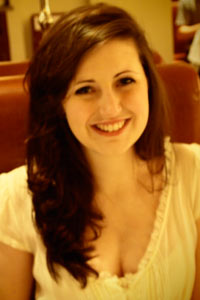gerald_bradshaw@post.harvard.edu
Bradshaw College Consulting
(219) 663-3041
Dear Mr. Bradshaw: I am a college junior majoring in journalism and hope to find an internship in New York City or Chicago. The only internships I have found in my search expect you to work for free. I estimate it would cost at least $6,000 to live in one of these cities for the summer and question if the expense is worth it.
Internship Hopeful
 |
| Journalism requires persistence: 866-687-8129 |
Dear Internship Hopeful
You don’t have to tell me, but I can hear your parent’s refrain ringing in your ear: “Study finance or medicine so you will have a good paying job after you graduate.”
However unimaginative you may have thought them to be, it should be clear by now that they were just being practical. Finance and medicine have pretty clear-cut career paths and are largely meritocratic professions. A career in journalism is governed more by lucky breaks and personal connections. If you don’t have these connections it is unlikely you will find a paid or unpaid internship at a large city newspaper or magazine.
Don’t misunderstand, nearly all publications are willing to read a résumé or email of inquiry. However, you had better include a brilliant cover-letter demonstrating some practical experience in journalism to catch their attention if you expect to have a fighting chance for an internship.
Many of my clients who interned last summer at top banking and consulting firms have already accepted jobs following their graduation in 2012. Only two clients found work in journalism and those jobs were at not-for-profits, not major print media publications.
You have chosen a profession where you have to be doggedly persistent and expect a lot of rejections. I have a client from Moscow who was published in the New York Times while still in high school in the United Kingdom. His story will give you an idea of what I am talking about.
Ilya was at home in Moscow last summer and decided to attend a criminal trial that was being covered by the international press and the New York Times. He met a journalist from the Times and asked him about opportunities for a summer internship. Ilya kept going back to the trial every day and pestering the journalist until he relented and told him to go out and find a newsworthy event, write it up, and submit it to the NYT.
His persistence paid off handsomely. That piece of advice would eventually lead to Ilya being published in the NYT. (See his article, “In Belarus, Just Being Can Prompt an Arrest.
You have to be aggressive and willing to take risks. Being a pest (sometimes it pays to be an obnoxious pest) is part of it. When it comes to the working world no one is going to take you by the hand and guide you. To find an internship you will have to hustle just like Ilya did and pay your dues.
The rewards are there if you don’t give up. Is it worth the money to live in a big city to get that experience? It all depends on you.
College Admissions Consulting Articles - Journalism requires persistence














